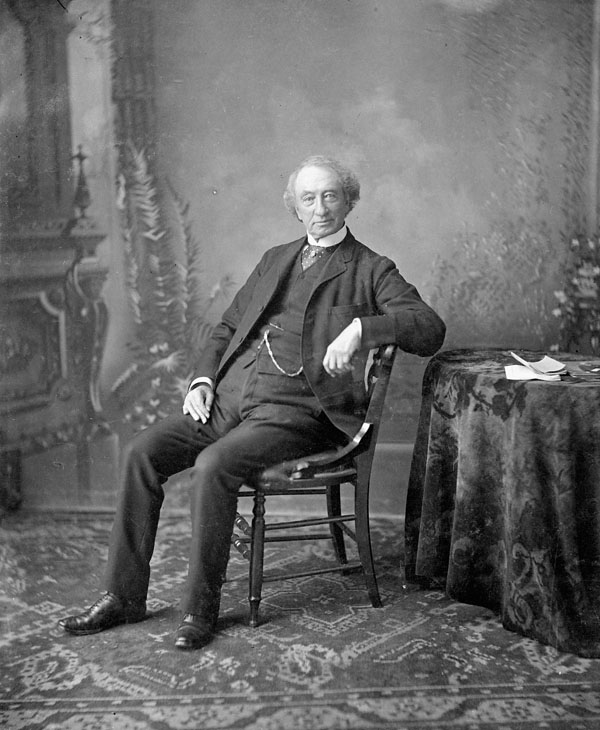
by Phillip Blancher
SOUTH DUNDAS — Today, January the 11th, marks the 200 birthday of Sir John A. Macdonald, Canada’s “Father of Confederation” and first Prime Minister. In the typical Canadian-way, there are few celebrations of this bicentennial planned outside of his ancestral home of Kingston, Ontario. That is unfortunate because the legacy of his man should be celebrated as there would be no Canada without Sir John A..
The story of Sir John A. Macdonald is long, well researched and well told by authors such as John Boyko and Richard Gwyn, but it bears a nutshell retelling. Born in Scotland, immigrated to Upper Canada as a child with his family, settling in Kingston. He became a lawyer at just 15 and throughout his legal career defended many in court who were unjustly prosecuted by the crown.
Once he entered politics, he lobbied for legal issues which helped form the justice system that is the fabric of today’s system. As Attorney General for Canada West (Upper Canada) in the late 1850’s, he ensured the courts and the crown adhered to the letter of the law and international treaty with respect to escaped African-American slave John Anderson as the United States tried to extradite Anderson back to the southern states for trial. Anderson was eventually freed, and Canada received more judicial independence in its own affairs, starting the path to Confederation.
Not an original supporter Confederation, he became Canada’s equivalent of George Washington. No gun was ever fired to secure Canada’s independence, but Sir John A. fought the political and legal battlefield just as deftly as George Washington commanded the Continental Army in their independence.
After Confederation, Sir John A. served as Prime Minister for 19 of the first 24 years of Canada’s existence. During that time, Canada grew to the nation to the size it is now, from Sea to Sea to Sea. He secured Prince Edward Island and British Columbia’s entry in to the country, the purchase of Rupert’s Land, the completion of the national railway which banded the country together and the opening of the west to settlement. He saw the need in balancing the different needs and wants of the various parts of the country, while being respectful, for the most part, to Canada’s two founding nations, the English and the French. There were challenges and yes Macdonald made errors, but what politician is perfect, then or now?
There are critics who judge the man based in the context of today’s values and realities. Based on that judgement, he was a racist and sexist person, and a raging alcoholic. He used patronage and connections to succeed, using money to secure a desired outcome was not unheard of. All negatives, but all under judgement of that time period, acceptable, and a reflection of the Canada that was. In the 19th century, there was racism towards the First Nations peoples, but Macdonald’s treatment of the Métis was a vendetta fueled by the political challenge of Riel to his country and the rule of law as he saw it, more than anything else. Women in Canada did not have the vote and were not treated as equals. Alcohol was a common vice for many. The use of patronage and graft was common among the political class, but Macdonald even lost his government over this. Without patronage and graft however, New Brunswick would not have become a province in Canada, at least in 1867. This writer asserts that it is unfair to judge ones actions outside of the context of the generation they lived in.
Sir John A. did not just lay the cornerstone of the country we call Canada, he laid the foundation. The rights, freedoms, equality, and values we enjoy today are built on that foundation and he rigorously championed that foundation. Everything from Canada’s asserting itself into international affairs, to championing the Statute of Westminster, the Canadian Bill of Rights, Repatriation of the Constitution, and the Charter of Rights and Freedoms.
It is for these things, Sir John A. Macdonald should be judged, and honoured, and celebrated. The legacy of Macdonald, warts and all, should be celebrated, discussed, argued and debated because it, more than anything else, formed the basis of our country. For that, we should have a national holiday to commemorate that. There is only one “political” holiday on the Canadian calendar, Victoria Day. There is room for one more on the calendar and who better to raise a toast to, than him?

Be the first to comment